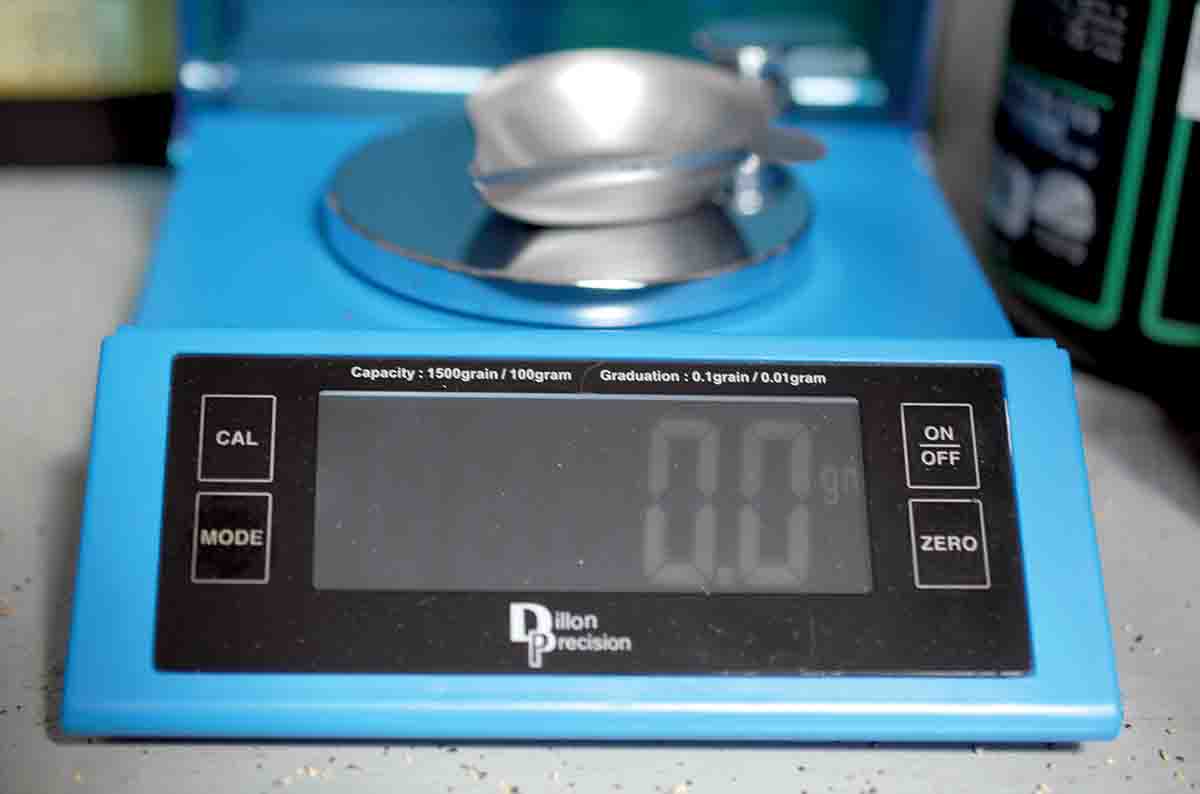Product Tests
Dillon D-Terminator Electric Scale
column By: Charles E. Petty | March, 18
I’ve been using digital reloading scales for years and never want to go back to a balance scale again. As a working chemist I was very involved with analytical balances when electronics began to appear, but they were all measuring in grams, not the archaic grain we handloaders use. The first digital in “grains” was an expensive scientific model that had been adapted, but the first scale I can recall dedicated to handloaders was from PACT in 1993. I still use mine.
Then along came an assortment of small “portable” battery-powered units that were not always stable and did not fare well at the range if there was more than a wisp of breeze. Battery power was fragile, and the load cell technology that made most of them work was highly susceptible to changes in temperature. The PACT scale uses only a plug-in power supply. Even solid-state electronics generate a little heat, so for best stability I just leave it on.

The Dillon D-Terminator scale can be operated on four AA batteries, but it also comes with a plug-in converter for AC power. Other than a brief test to see that the batteries worked, the scale stays on the bench plugged in and turned on. That has provided a check on stability. If there was nothing on the pan the zero reading was the same time after time, but if a powder charge was in the pan, there was sometimes an increase of a tenth of a grain or two, presumably due to humidity.
The front of the scale has a touchscreen with four switches. On the right are “off/on” and “zero” (tare) buttons, and on the left are “calibrate” and “mode” switches. The calibration procedure is simple and uses a 100-gram weight that is included. The mode button can switch units between grams (g), grains (gr), carats (ct), penny-weights (dwt), ounces (oz) and troy ounces (ozt). It will toggle between the programmed units instantly.
The best thing going for it is the liquid crystal display (LCD) that is well lit and shows numbers an inch high. We are also accustomed on waiting awhile for beams or displays to stabilize, but this one is virtually instantaneous.
After the scale was calibrated and allowed to warm up for an hour, I ran through a set of check weights that included: 1, 5, 10, 20, 50 and 100 grains. All were dead-on except for the 100 grain that read 99.9. I tried that one on two other scales and got 99.8 and 99.9. Conclusion: The weight is off.
The scale has been in continuous use and continues to impress. After sitting overnight the zero may have drifted a little, but a touch of the zero button fixes that. The first few times that happened the calibration was checked and found to be right on. It is a keeper. The MSRP is $139.95 at www.dillonprecision.com or 1-800-223-4570.


